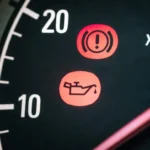
Peugeot 208 Common Faults: The Complete Expert Guide to Fixing Every Issue

The Peugeot 208 is one of Europe’s best-selling superminis—a car that blends French charm with sharp design and efficient engines. But beneath its stylish exterior, it’s not immune to problems. Whether you own a petrol, diesel, or electric version, understanding the most common Peugeot 208 faults can save you money, time, and frustration.
In this comprehensive guide, we break down every known issue—why it happens, what symptoms to look for, and how to fix it for good.
- 1. Engine Stalling and Hesitation
- 2. Oil Pressure Warning Light (1.2 PureTech Engine)
- 3. Excessive Oil Consumption
- 4. Clutch Slipping or Hard Gear Changes
- 5. Gearbox Noises (Grinding or Whining)
- 6. Battery Drain and Starting Issues
- 7. Infotainment System Freezes and Reboots
- 8. Alternator Failure
- 9. Timing Belt (Wet Belt) Degradation
- 10. Brake Vacuum Pump Contamination (Recall Issue)
- 11. Dashboard Warning Lights Misfiring
- 12. Rear Axle Beam Wear
- 13. Door Lock or Central Locking Malfunctions
- 14. E-208 Charging and Range Issues
- 15. Suspension Creaking or Front-End Knocking
- Maintenance Tips to Avoid Common Peugeot 208 Problems
- Conclusion
- FAQs
1. Engine Stalling and Hesitation
The 208’s engine stalling issue is infamous among early models (2012–2014). Many drivers report the car cutting out unexpectedly while driving or idling.
Common Causes
- Faulty engine control unit (ECU) sending incorrect signals
- Dirty fuel injectors restricting fuel flow
- Malfunctioning mass airflow (MAF) or crankshaft sensors
Fix
A full diagnostic scan is the first step. Mechanics typically clean or replace injectors and sensors, and if software bugs are found, an ECU update from Peugeot usually resolves the issue.
Pro Tip: Keep your ECU updated during regular servicing—it prevents minor software glitches from turning into major driveability problems.
2. Oil Pressure Warning Light (1.2 PureTech Engine)
Drivers of 1.2L PureTech engines often see an oil pressure warning light flash when braking or idling.
Root Cause
This fault links directly to the wet timing belt design. The belt runs inside the engine oil, and as it degrades, it sheds rubber debris into the oil, clogging the oil pickup and reducing pressure—especially noticeable during braking.
Fix
- Inspect and replace the timing belt every 60,000 miles (or sooner if wear is visible).
- Flush the oil system to remove contaminants.
- Always use manufacturer-approved oil to minimize belt wear.
Ignoring this fault risks catastrophic engine damage due to oil starvation.
3. Excessive Oil Consumption
Many 208 owners find themselves topping up oil more frequently than expected. Blue exhaust smoke is a tell-tale sign of oil burning.
Possible Culprits
- Worn piston rings or valve stem seals
- PCV (Positive Crankcase Ventilation) system faults
- Oil contamination from the wet belt degrading
Solution
Replace worn seals or piston rings, and check the PCV system for blockages. If your 208 uses the PureTech engine, inspect the timing belt for deterioration, as this may worsen oil consumption.
4. Clutch Slipping or Hard Gear Changes
Manual Peugeot 208 models frequently suffer clutch problems, particularly as mileage climbs.
Symptoms
- Difficulty engaging gears
- Burning smell during acceleration
- Engine revs increase without speed gain
Causes
Aggressive driving and riding the clutch accelerate wear. The clutch disc loses friction, leading to slipping.
Fix
Replace the entire clutch kit (disc, pressure plate, and release bearing). Avoid resting your foot on the clutch pedal to extend its lifespan.
5. Gearbox Noises (Grinding or Whining)
Strange noises from the gearbox are common in older Peugeot 208s, particularly during gear changes.
Typical Causes
- Worn synchronizers (synchros)
- Damaged bearings inside the gearbox
- Low or degraded gear oil
Fix
While topping up gear oil may temporarily quieten noise, it’s not a cure. A professional gearbox rebuild or replacement of the affected parts is usually required.
You may be interested in reading Peugeot 208 Radio Not Working – Full Expert Guide to Diagnose and Fix
Peugeot 208 Radio Not Working – Full Expert Guide to Diagnose and Fix6. Battery Drain and Starting Issues
Many owners report their 208 refusing to start after being parked overnight. The car may crank slowly or require jump starts.
Underlying Issues
- Parasitic battery drain from electrical components staying active
- Faulty alternator not recharging the battery properly
How to Fix It
Run an electrical system test to trace any parasitic draws. Replace the alternator if it’s not maintaining charge. In some cases, a software update resolves phantom drains caused by the body control module.
Preventive Tip: Drive your 208 regularly or use a trickle charger during long periods of inactivity.
7. Infotainment System Freezes and Reboots
The 208’s touchscreen interface is known to freeze or randomly restart—especially on early-generation models.
What Causes It
- Outdated or corrupted infotainment software
- Hardware faults in the head unit
Solution
Peugeot often releases software updates to fix bugs. If issues persist after updates, replacing the infotainment module may be the only fix.
Quick Reset: Hold down both the power and eject buttons for 10 seconds—this soft resets most infotainment units.
8. Alternator Failure
A failing alternator can trigger a chain reaction of electrical issues—dim headlights, warning lights, or a dead battery.
Symptoms
- Battery light glowing on the dash
- Flickering lights or electrical malfunctions
- Engine stalls after short drives
Fix
Replace the alternator with a genuine or high-quality OEM unit. Typical replacement cost: £400–£450 including labor.
9. Timing Belt (Wet Belt) Degradation
This is one of the most serious Peugeot 208 faults, especially for PureTech engines. The “wet belt” sits in engine oil and naturally deteriorates over time.
Warning Signs
- Oil contamination
- Rattling noise from the engine
- Engine stalling or misfires
Why It Matters
When the wet belt breaks or slips, the camshaft and crankshaft lose synchronization, leading to expensive engine damage.
Prevention
Replace the belt every 60,000 miles or 6 years. Use high-quality, low-silicate oil to prevent premature wear.
10. Brake Vacuum Pump Contamination (Recall Issue)
Certain Peugeot 208s were recalled after timing belt debris was found clogging the brake vacuum pump. This led to reduced braking power—a serious safety hazard.
Check If You’re Affected
Use your VIN number on Peugeot’s official recall page or contact your local dealer. The repair—replacing the vacuum pump and belt—is done free of charge under recall.
11. Dashboard Warning Lights Misfiring
Some 208 models trigger false dashboard warnings, from airbag lights to traction control alerts.
Likely Cause
Moisture or voltage instability in the Body Control Module (BCM) can lead to false readings.
You may be interested in reading Peugeot 208 Radio Not Working – Full Expert Guide to Diagnose and Fix
Peugeot 208 Radio Not Working – Full Expert Guide to Diagnose and Fix Peugeot 208 Oil Pressure Fault – Complete Expert Guide to Causes, Fixes, and Prevention
Peugeot 208 Oil Pressure Fault – Complete Expert Guide to Causes, Fixes, and PreventionFix
A BCM software update or resealing the module against moisture often resolves the issue. If the lights persist, professional diagnostics are recommended.
12. Rear Axle Beam Wear
Older 208s can develop clunking noises from the rear, especially over bumps.
Reason
The axle beam bushes degrade over time, allowing movement and causing noise or instability.
Solution
Replace worn bushes or the entire rear beam assembly. While not an urgent safety risk, it affects ride comfort and alignment.
13. Door Lock or Central Locking Malfunctions
Owners sometimes find one door refusing to lock or unlock via remote.
What’s Going On
- Actuator failure
- Broken wiring in the door harness
- Software glitch in the locking control module
Fix
Test each actuator individually. If the wiring and actuators are fine, a control unit reset or replacement is needed.
14. E-208 Charging and Range Issues
The electric Peugeot e-208 adds its own quirks—particularly with charging interruptions or reduced range.
Possible Causes
- Faulty charging cable or onboard charger module
- Battery management software misreading charge levels
Fix
Perform a battery control software update at a dealer. Regularly recalibrate range estimates by charging to 100% and running down to around 10% monthly.
15. Suspension Creaking or Front-End Knocking
Unusual noises over speed bumps or potholes are another 208 complaint.
Cause
- Worn anti-roll bar links
- Perished suspension mounts
- Loose top strut bearings
Solution
A mechanic can identify worn components quickly. Replacing the affected parts restores handling and ride comfort.
Maintenance Tips to Avoid Common Peugeot 208 Problems
- Change oil every 6,000–8,000 miles, not just when the computer says so.
- Use only Peugeot-approved 0W-30 or 5W-30 oil for PureTech engines.
- Replace the timing belt early if you notice any belt noise or oil contamination.
- Keep software updated—infotainment, ECU, and BCM updates prevent many electronic issues.
- Regularly check battery voltage and drive weekly to avoid drain.
Conclusion
The Peugeot 208 is a capable, fun, and efficient supermini—but even the best cars have their flaws. Regular maintenance, timely oil and belt changes, and staying ahead on software updates make all the difference between frustration and years of reliable motoring.
If you know what to watch for, most Peugeot 208 common faults are preventable—or at least fixable before they become costly.
FAQs
1. How reliable is the Peugeot 208 overall?
The 208 holds an average reliability rating of around 72%, according to surveys. Most issues relate to the PureTech engines and infotainment systems.
2. How often should the timing belt be replaced on a Peugeot 208?
Every 60,000 miles or 6 years, whichever comes first—especially on wet-belt PureTech engines.
3. Why does my Peugeot 208 lose oil quickly?
It’s often due to worn piston rings, valve seals, or degrading wet belts contaminating oil.
 Peugeot 208 Radio Not Working – Full Expert Guide to Diagnose and Fix
Peugeot 208 Radio Not Working – Full Expert Guide to Diagnose and Fix Peugeot 208 Oil Pressure Fault – Complete Expert Guide to Causes, Fixes, and Prevention
Peugeot 208 Oil Pressure Fault – Complete Expert Guide to Causes, Fixes, and Prevention Peugeot 208 Not Starting: Complete Guide to Causes, Symptoms, and Fixes
Peugeot 208 Not Starting: Complete Guide to Causes, Symptoms, and Fixes4. What causes a Peugeot 208 to not start?
Most no-start issues stem from a dead battery, parasitic drain, or a faulty alternator.
5. Are Peugeot 208 gearbox noises expensive to fix?
Yes, gearbox rebuilds can cost £800–£1,200, but catching worn bearings or low oil early can prevent major damage.
If you want to know other articles similar to Peugeot 208 Common Faults: The Complete Expert Guide to Fixing Every Issue you can visit the category Common Problems.
Leave a Reply






More content of your interest